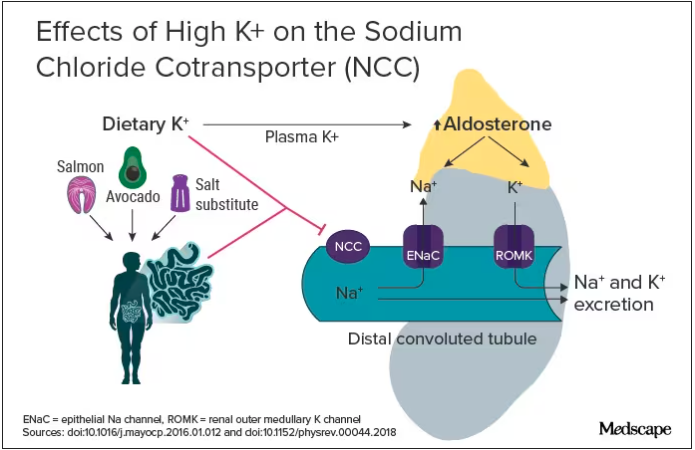Debate in Hypertension Journal Explores Focus on Sodium Restriction or Potassium Supplementation
In the ongoing quest to manage blood pressure effectively, a debate has emerged in the journal Hypertension regarding the central role of either sodium restriction or potassium supplementation. The dueling perspectives offer intriguing insights into renal physiology and pose critical questions about realistic dietary interventions.
The Case for Sodium Restriction: Stephen Juraschek, MD, PhD, from the Beth Israel Deaconess Medical Center, advocates for the importance of sodium reduction. Numerous intervention studies, such as INTERSALT, the DASH diet, and TOHP, highlight the consistent relationship between sodium reduction and blood pressure. However, he acknowledges an outlier in the PURE study, emphasizing the need for accurate sodium measurement and considering confounding factors in observational studies.
Recent studies, including the SSaSS trial and CARDIA-SSBP, provide compelling evidence supporting sodium reduction’s efficacy. Juraschek asserts that targeting sodium in processed foods through regulation is a pragmatic approach, given the challenges of altering individual dietary habits significantly.
The Case for Potassium Supplementation: Swapnil Hiremath, MD, MPH, from the University of Ottawa, contends that potassium supplementation deserves more attention. While smaller in scale, studies supporting potassium’s benefits exist, with the DASH diet emphasizing increased potassium intake through fruits and vegetables. The SSaSS study, testing a salt substitute with 25% potassium, further demonstrates the potential of potassium supplementation.
Hiremath acknowledges the taste challenges associated with oral potassium supplementation but suggests its viability as a dietary supplement. He proposes considering potassium tablets as a feasible option, given patients’ willingness to embrace dietary supplements over prescription medications.
Realistic Diets and Taste Issues: Both perspectives agree on the importance of practical interventions. While Juraschek supports sodium reduction in processed foods, Hiremath emphasizes the need for achievable strategies. Recommending healthier diets rich in fruits and vegetables is ideal but faces economic and practical challenges. The discussion extends to the feasibility of potassium supplementation through tablets or salt substitutes, with considerations for taste preferences.
Policy Implications: The debate also touches on policy changes, notably the FDA’s proposal to allow salt substitutes to be labeled as salt. While a step in the right direction, both sides agree that comprehensive strategies, possibly combining sodium regulation and potassium supplementation, may be necessary for effective blood pressure control.
In conclusion, the dueling perspectives provide a nuanced understanding of blood pressure management, acknowledging the complexities of dietary interventions and the need for multifaceted approaches.
Christopher Labos, a cardiologist and epidemiologist, contributes to the discussion, highlighting the evolving nature of research findings and the importance of practical, achievable solutions in the realm of blood pressure control.












